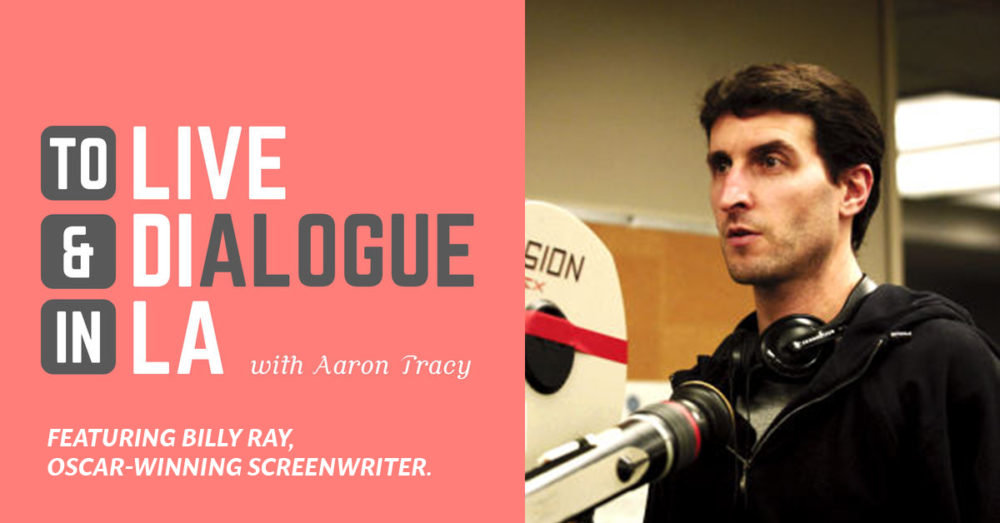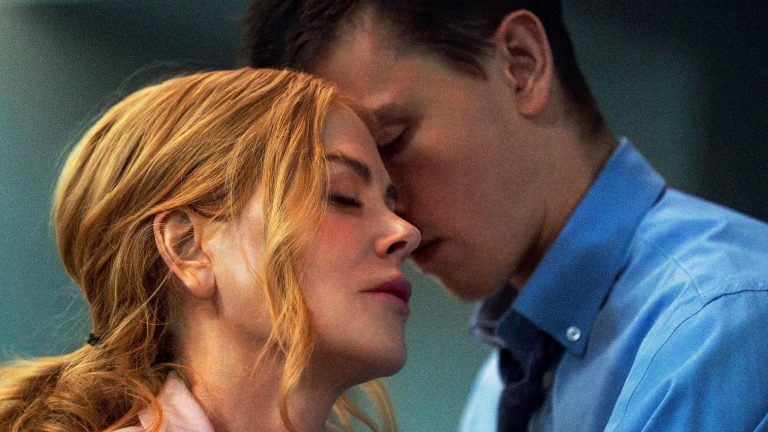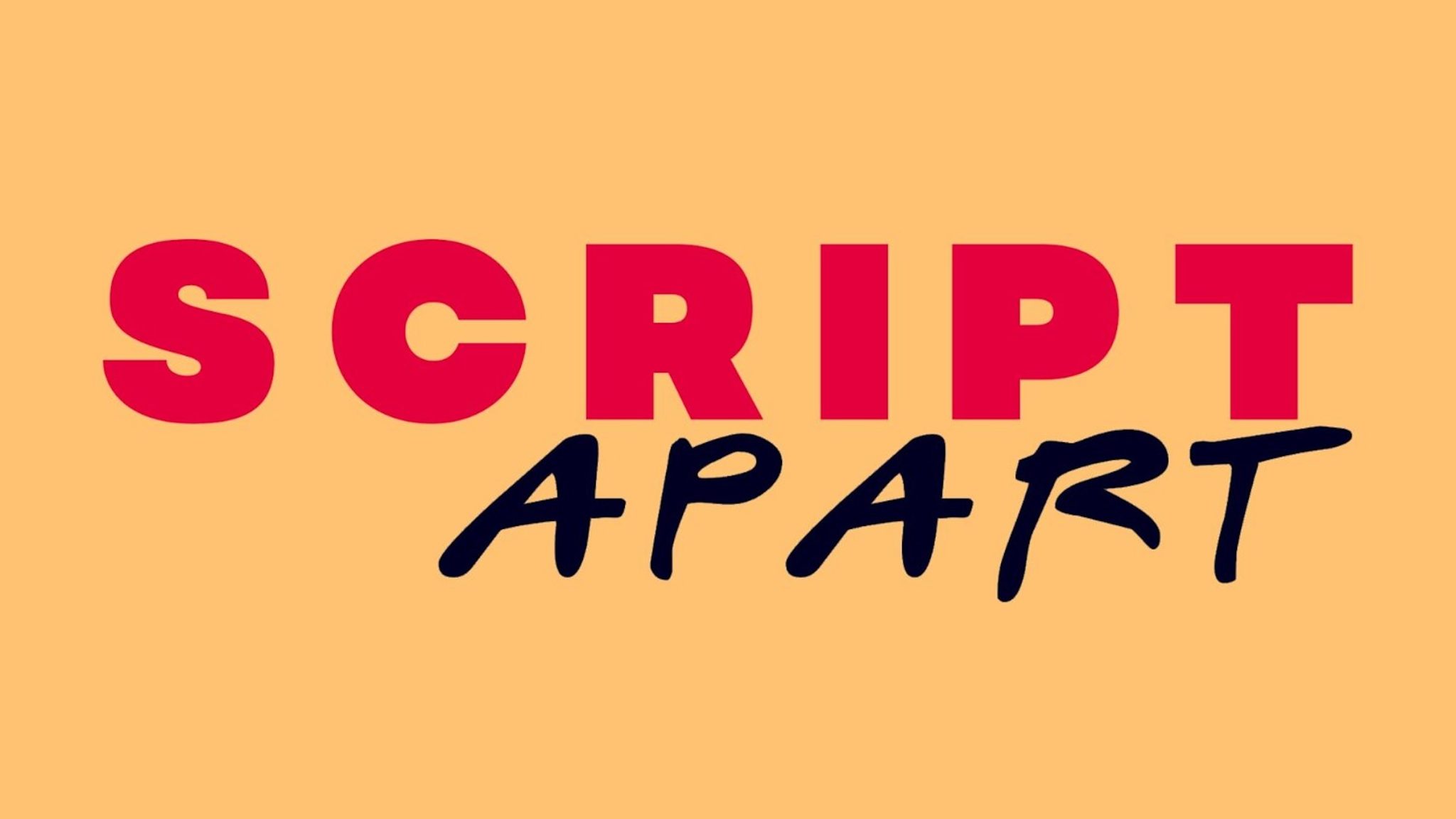7 Ways to Embrace Your Fear of Failure

Aaron Tracy, host of To Live & Dialogue in LA, part of the Yale Podcast Network's latest episode was released today. In this episode, Aaron interviews Billy Ray, one of the biggest names in screenwriting. He wrote the Hunger Games, is rewriting the new Terminator movie and several other tentpole movie studio movies. He's established himself in the true-story niche, writing on movies like Captain Phillips, Shattered Glass and Breach. Even his latest TV show The Last Tycoon is based on a Fitzgerald novel, which is inspired by the true story of Irving Thalberg.
1. Connections Come from Everywhere
Speaking of The Last Tycoon, Aaron starts the episode out by asking Billy, "How'd you first get connected to do an adaptation of the Fitzgerald novel?"
Billy praises, "It actually started with my wife. She met a producer name Josh Maurer, who had the rights to the book, and he contacted me, and I had never done TV in over 25 years and wasn't really looking to do TV, but it was Fitzgerald. And to my great shame, I had never read The Last Tycoon, so I thought I should take a look at The Last Tycoon. So I read the book—the unfinished book—and just fell in love and saw an opportunity there to comment on the Hollywood and the America of today by telling this story that started in 1936 and it was just sort of irresistible to me."
2. Failure is Inevitable if You're Not a Team Player
Aaron follows up with the stinging question, "Why do you think Fitzgerald failed miserably in Hollywood? Why do you think that is?"
Billy continues, "Well, there are a number of reasons. I don't think he ever understood the economy of screenplay language. I think he came here with a pretty large chip on his shoulder, which you know he had earned, because I think he had a sense of his own greatness as a writer. But he did not understand that in Hollywood the writer does not have primacy. It's a director's medium and having done both, I can understand that, but he clearly didn't. It must have been pretty depressing to do what he did, which was occasionally, in Los Angeles, he would wander into a bookstore and say, 'Do you have anything by F. Scott Fitzgerald?' and then be told 'Isn't he dead?' You know, you hear these stories about Fitzgerald and he must have known how much talent he had and what he was capable of. And he must have known that he was one of those authors that was never going to be recognized in his own time for his greatness"
3. Screenwriters Will Never Have Complete Control Over Their Work, and That's Okay
Speaking about the culture of making a film and how everyone really needs to be on the same side, Billy comments, "...that was so not who Fitzgerald was. He was born to write inside of a silo and he did with tremendous effect, but that is not how things work in Hollywood. This sort of circles back to your question of why he failed there—here—it is the most collaborative medium in the world and if you can't be a team player, you are going to flame out, in one stage or another. And I don't think he ever totally grasped that idea."
Aaron agrees, "That's interesting. I think you're probably right, because he's so... he came from a mindset of a novelist, where you have complete control over your own work."
"And that's it," Billy assures, "Nobody has complete control out here. The most celebrated director in the world still has to get everybody around him or her to cooperate."
4. Check Your Ego at the Door
Jumping ahead, Billy explains, "My fear of failure is so much greater than my need for someone to kiss my butt, that it drives me. In other words, you know, when I hand in a script, to anybody, of course, what I'm hoping they'll say is 'this is perfect, don't change a word,' but if they give me notes, I execute the notes, because my ego definitely takes a back seat to my desire to succeed. And my ego is not going to help me if it's protecting me from smart notes—that's as a writer, as a director, as a producer, as a person."
5. Out Hustle Everybody Else
"There's a line that Monroe Stahr says in the pilot of Tycoon, he says, 'I'm not talented enough to be unprepared.' And that is a direct quote from me. I mean it's something I've been saying about myself for a long time and I believe it to be true. You know, I was an okay student in high school and in college... In classes that inspired me I did very, very well and in classes that didn't, I sort of did enough not to embarrass myself but certainly nothing special ... and then when I got out of school and saw how hard it was going to be to actually make a living in show business, something just clicked in a way it had never clicked for me in school, where I just realized 'I'm going to have to outwork everybody. I'm going to just have to flat out out hustle everybody to get what I want and I've been doing it ever since."

6. The Only Control You Have is Your Willingness to Work Hard
"That feeling of 'there's so many variables in the entertainment industry that will directly impact your ability to make a living over which you have no control. You have no control over the health of the economy, no control over the health of our business, you have no control over what's going to happen—if the DVD market flatlines as it did or the explosion of all these streaming services, there's no control over any of that, no control over whether superhero movies are in or out... The one variable of which you have any control is your willingness to work hard, and so you better maximize that variable."
7. Sweat Equity is an Important Factor in Getting What You Want
They go on to talk about show bibles and putting in sweat equity—something not all screenwriters are able to do, but Billy is lucky enough to be able to spend some major time on, even if it doesn't work out. Not making the money you thought you might is one thing, but the mental devastation can take its toll. "What I've found was, in those moments where you have really, really bet it all on something and it doesn't sell, yes of course, it's hugely disappointing and frustrating and angering and makes you doubt whether or not you can trust your own instincts about where you should be putting your time and your energy. But the fact is that there's no way to get the best work out of yourself without investing in that way." There is one caveat to that he divulges in the full episode that you can listen to below.
We could go on forever about how great this podcast episode was and give you all of the incredible secrets and advice that are swimming through the sound waves, straight from Yale's Campus, but listening will be a much better experience. Promise.
For all the latest ScreenCraft news and updates, follow us on Twitter, Instagram and Facebook!
Tags
Get Our Screenwriting Newsletter!
Get weekly writing inspiration delivered to your inbox - including industry news, popular articles, and more!



























